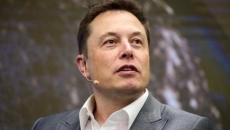The federal government says it is deferring the implementation of a hike to the capital gains inclusion rate to next year and plans to introduce new exemptions to ensure most middle-class Canadians do not pay more tax if the rate becomes official.
The deferral announced by Finance Minister Dominic LeBlanc on Friday delays the implementation of the change from June 25, 2024 to Jan. 1, 2026.
LeBlanc promised to table legislation related to the capital gains inclusion rate changes along with an increase to the lifetime gains exemption and a new incentive for entrepreneurs "in due course."
“The deferral of the increase to the capital gains inclusion rate will provide certainty to Canadians, whether they be individuals or business owners, as we quickly approach tax season," LeBlanc said in a statement.
"Given the current context, our government felt that it was the responsible thing to do."
We are deferring – from June 25, 2024 to January 1, 2026 – the increase to the capital gains inclusion rate. As we quickly approach tax season, this deferral will provide certainty to Canadian taxpayers. To learn more: https://t.co/77RBZyck2G
— Dominic LeBlanc (@DLeBlancNB) January 31, 2025
The hike being deferred is meant to raise the portion of capital gains on which companies pay tax to two-thirds from one-half. The policy would also apply to individuals with capital gains earnings above $250,000.
While the hike was proposed in the Liberals' latest federal budget and introduced later as a ways and means motion, it hasn't passed in Parliament, which is prorogued until March 24.
However, the Canada Revenue Agency had already started to administer the changes because parliamentary convention dictates that taxation proposals are effective as soon as the government tables a notice of ways and means motion.
The tax agency previously said it would only stop administering the policy if Parliament resumes and the government signals it will no longer proceed with the proposed changes to capital gains taxation.
The decision to begin collecting tax before it was made law "created months of uncertainty and a tax-filing nightmare for working Canadians across our country," pointed out Conservative MPs Jasraj Singh Hallan and Adam Chambers in a joint statement.
Some Canadians were unsure whether to file taxes as if the capital gains hike would become law or take the chance of skirting the policy because parliament isn't slated to reconvene for two more months and many are predicting the Liberal government will fall after it selects a new leader in March.
LeBlanc's Friday announcement seeks to deliver clarity to these Canadians and appease the many critics, including executives from tech darling Shopify Inc., who saw the capital gains hike as a way to drive innovation and talent out of the country.
LeBlanc's announcement included increasing the lifetime capital gains exemption to $1.25 million from the current amount of about $1 million on the sale of small business shares and farming and fishing properties.
The increase effective June 25, 2024 means Canadians with capital gains below $2.25 million would pay less tax, even after the inclusion rate increases on Jan. 1, 2026, LeBlanc said.
The increase to the lifetime capital gains exemption will be paired with a new $250,000 annual threshold for Canadians effective Jan. 1, 2026.
Capital gains, including on the sale of a secondary property, such as a cottage, will be eligible for the $250,000 annual threshold, meaning a couple selling a cottage with a $500,000 capital gain would not pay more tax, the government said.
Rounding out LeBlanc's Friday moves is a new Canadian Entrepreneurs’ Incentive, which drops the inclusion rate to one-third on a lifetime maximum of $2 million in eligible capital gains.
The incentive would take effect starting in the 2025 tax year and the maximum would increase by $400,000 each year, reaching $2 million in 2029, the government said.
It added that when combined with the new $1.25 million lifetime capital gains exemption, entrepreneurs would pay less tax and be better off on capital gains of up to $6.25 million.
The changes and the deferral didn't assuage all the criticism.
The Council of Canadian Innovators was disappointed the government didn't admit it had been wrong about the policy introduced by former Finance Minister Chrystia Freeland, who has since committed to reversing the hike if she's elected prime minister.
"Providing real certainty to Canadians would be to admit once and for all that this was a mistake and move on," Benjamin Bergen, president of the organization representing 150 tech companies, said in an email.
Meanwhile, the Canadian Federation of Independent Business saw Friday's announcement as "welcome news" for small businesses but warned there's a lesson to be learned.
"This experience highlights the need for Canada to introduce rules guiding provisional authority for the Canada Revenue Agency to collect taxes," CFIB president Dan Kelly said in a statement.
His organization, which represents 100,000 small and medium-sized businesses, promised to lobby the government to mirror legislation from the U.K., allowing its tax authority no more than six months to pass legislation.
If legislation is not passed and Parliament is prorogued, CFIB said its proposed change would ensure tax rates automatically return to their previous levels.






